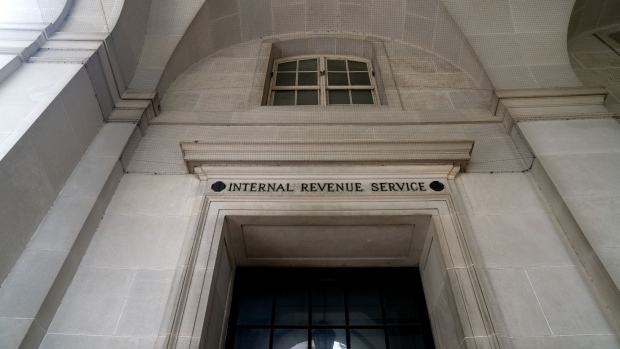Sep 23, 2021
Democrats Agree to Slim Biden Plan Giving IRS Bank-Account Data
, Bloomberg News

(Bloomberg) -- Democrats have reached a deal to narrow President Joe Biden’s plan to require financial institutions to report account flows to the Internal Revenue Service in a bid to improve tax compliance, according to a key House Democrat.
House Ways and Means Chairman Richard Neal said he and other Democratic leaders are planning to set a threshold higher than the $600 proposed by the Biden administration that would trigger a bank to report total account inflows and outflows to the tax collection agency.
“We’ve reached an agreement to not have the $600,” Neal said Thursday, adding that other details are still being worked out.
The idea is one of dozens of tax proposals that Democrats are currently considering to fund a $3.5 trillion bill to invest in climate programs, child care and education.
The White House proposal to give the IRS more visibility into the deposits and outflows of many bank account owners has run into heavy lobbying from banks, along with resistance from Republicans and some Democrats who are concerned that it would give the IRS too much of taxpayers’ personal data. A $600 threshold for deposits or withdrawals would give the IRS information on most accounts.
A more narrowly targeted proposal could help win over support from some Democrats who have been hesitant to back the plan. The idea was excluded from an initial House version of the tax bill partly because lawmakers couldn’t reach on agreement on the measure.
Tailoring Proposal
Senate Finance Committee Chairman Ron Wyden said he wants to tailor the proposal so that it focuses on high-income earners and that he is working to come up with a process to make it administrable for banks and the IRS.
The original White House proposal could raise as much as $463 billion over a decade, according to a Treasury Department estimate. A scaled-back version would likely raise less, but would still give lawmakers more room to spend on other priorities. One idea that House lawmakers have considered is using the money to offset the cost of a more generous state and local tax, or SALT, deduction -- an expensive but politically important tax break.
The Treasury Department has pushed for the expanded bank reporting requirements as a way to reduce the tax gap, which is the difference between what is owed in taxes and what is actually collected. This idea would give the IRS more visibility into income that they can’t verify under current law.
For many people, the IRS can already verify their income from wage statements from employers. The Treasury estimates tax compliance is at 99% for income where there is third-party reporting. When income isn’t verified by a third party, such as rental income or some small business revenue, Treasury estimates people report only 45% of their total income.
©2021 Bloomberg L.P.